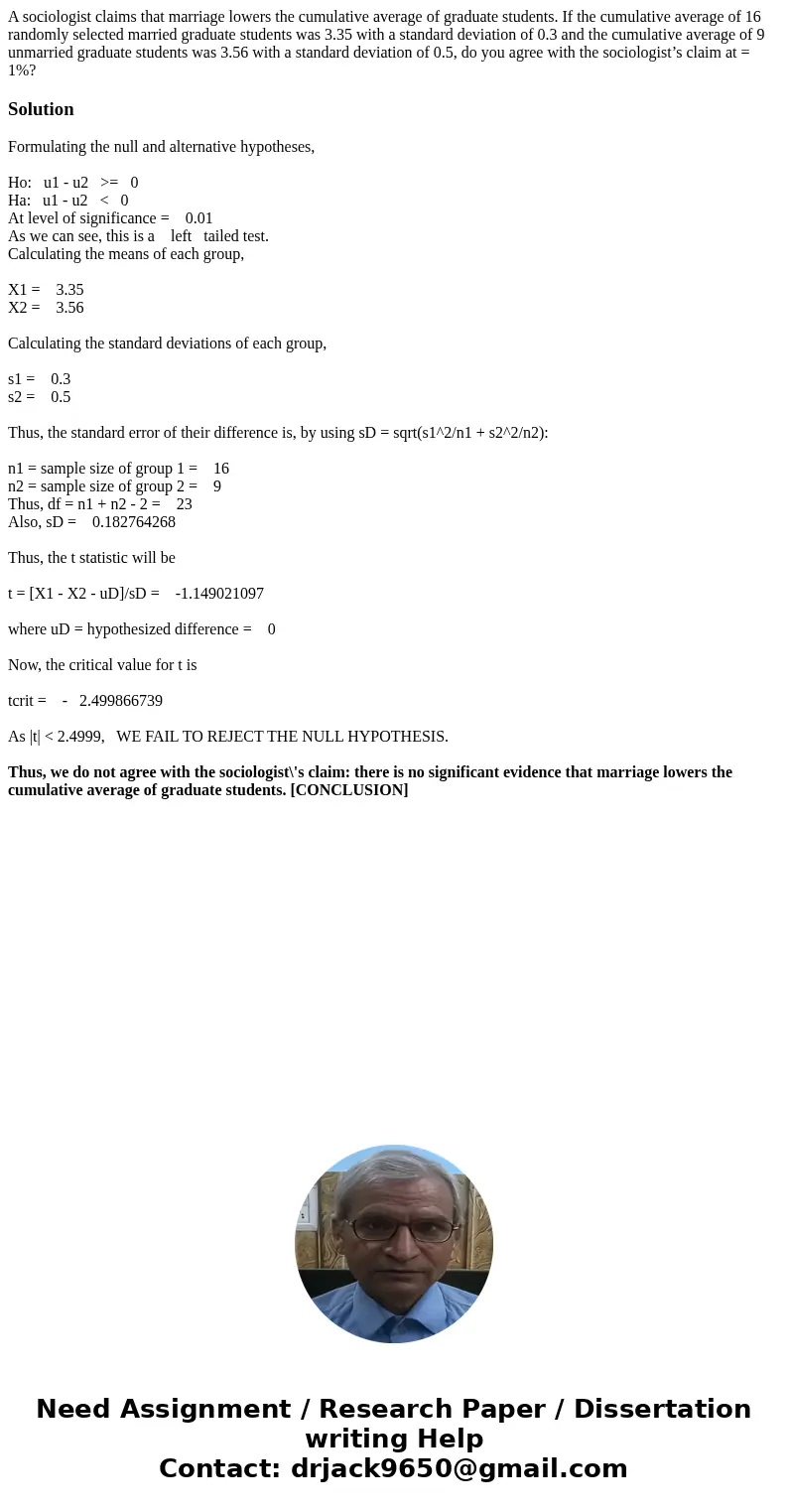A sociologist claims that marriage lowers the cumulative ave
A sociologist claims that marriage lowers the cumulative average of graduate students. If the cumulative average of 16 randomly selected married graduate students was 3.35 with a standard deviation of 0.3 and the cumulative average of 9 unmarried graduate students was 3.56 with a standard deviation of 0.5, do you agree with the sociologist’s claim at = 1%?
Solution
Formulating the null and alternative hypotheses,
Ho: u1 - u2 >= 0
Ha: u1 - u2 < 0
At level of significance = 0.01
As we can see, this is a left tailed test.
Calculating the means of each group,
X1 = 3.35
X2 = 3.56
Calculating the standard deviations of each group,
s1 = 0.3
s2 = 0.5
Thus, the standard error of their difference is, by using sD = sqrt(s1^2/n1 + s2^2/n2):
n1 = sample size of group 1 = 16
n2 = sample size of group 2 = 9
Thus, df = n1 + n2 - 2 = 23
Also, sD = 0.182764268
Thus, the t statistic will be
t = [X1 - X2 - uD]/sD = -1.149021097
where uD = hypothesized difference = 0
Now, the critical value for t is
tcrit = - 2.499866739
As |t| < 2.4999, WE FAIL TO REJECT THE NULL HYPOTHESIS.
Thus, we do not agree with the sociologist\'s claim: there is no significant evidence that marriage lowers the cumulative average of graduate students. [CONCLUSION]

 Homework Sourse
Homework Sourse